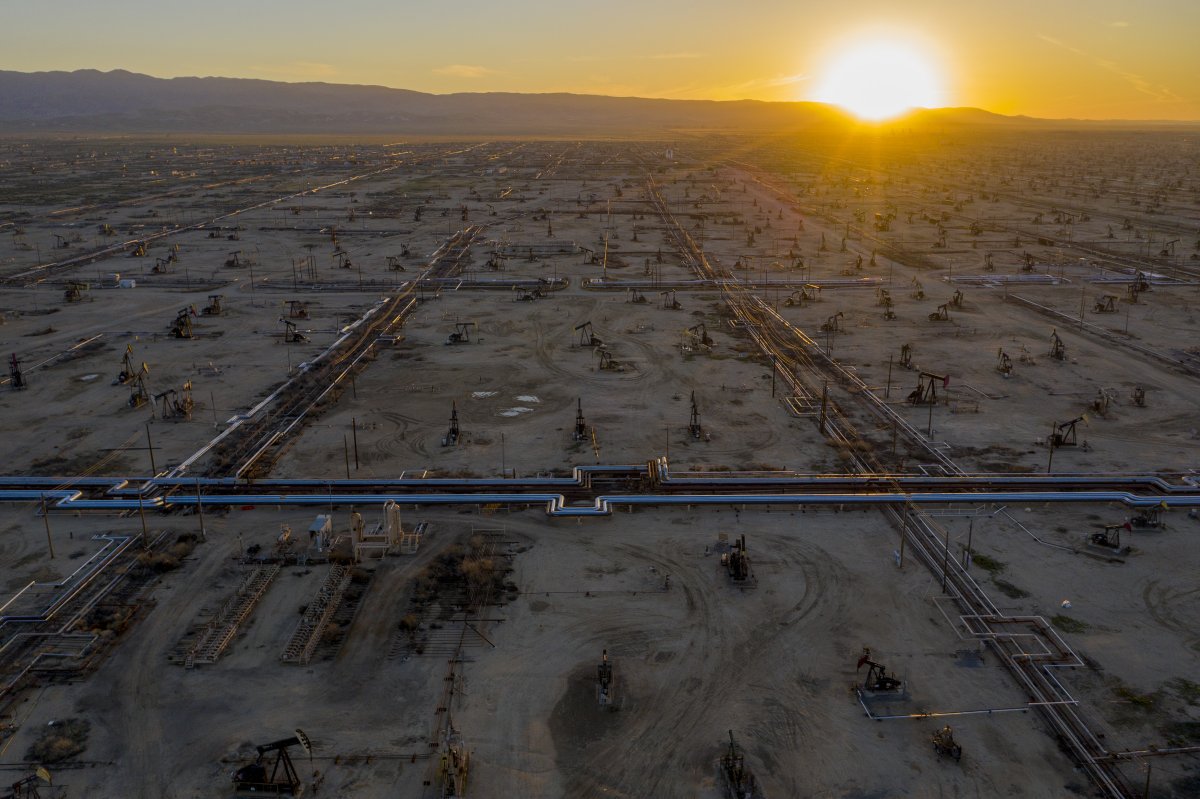As President-elect Donald Trump’s picks for energy posts face confirmation hearings this week, the oil industry’s top lobbying group detailed its recommendations for the incoming administration. The industry spent a record amount to help elect Trump and other Republicans, and their energy wish list would mark a dramatic reversal on many of the country’s climate and energy policies.
The American Petroleum Institute (API) rolled out its energy “road map” for the Trump administration and the new Republican-controlled Congress on Tuesday. Topping the list: expanded drilling areas and the reversal of rules by President Joe Biden’s administration on auto emissions and natural gas exports.
“This past November, American energy was on the ballot, and American energy won,” API President and CEO Mike Sommers said in a press briefing as he attempted to turn Republican victories in the presidential and congressional races into a mandate for fossil fuel development.
“There are many steps the Trump administration can begin to take on day 1,” he said.

Photo Illustration by Newsweek/Getty Images
The oil and gas sector gave more money to Republican and conservative candidates and political groups in the 2024 election cycle than in any previous election, according to the independent campaign finance watchdog group Open Secrets.
Open Secrets data shows roughly $239 million in total political spending by the oil and gas sector in the 2024 election cycle, a roughly 60 percent increase from the industry’s campaign spending in the 2020 election cycle. About 89 percent of the industry money went to Republican or conservative groups, mostly in the form of so-called “soft money” or outside spending.
Even though oil and gas production surged during Biden’s term—the U.S. now produces more crude oil than any country, ever—Sommers said Trump should begin by overturning Biden’s recent ban on new offshore drilling permits on hundreds of millions of acres along the Atlantic, Pacific and Florida Gulf coasts.
“It’s time to restore a pro-American energy approach to federal leasing and send a signal that America is open for energy investment,” Sommers said. He added that the API is prepared to argue in court that Trump has authority to overturn Biden’s ban; however, many environmental law experts contend that such a move would require congressional action.
Sommers also wants Trump to lift Biden’s pause on permits for new terminals to export liquified natural gas, or LNG. Europe has become a large consumer of American gas shipped in this form following fuel disruptions brought on by Russia’s invasion of Ukraine.
However, climate advocates argued that LNG exports increase greenhouse gas emissions and undermine the development of cleaner energy sources, and some consumer groups expressed concerns about how gas exports would affect domestic energy prices.
In a study released last month, the Department of Energy found that a very large LNG export terminal would “yield more annual greenhouse gas emissions by itself than 141 of the world’s countries each did in 2023.” Additionally, the DOE warned, expanded LNG exports expose American consumers to higher prices of both natural gas and the electricity it generates.
Sommers countered that with findings from a new study from S&P Global that the LNG industry contributed more than $400 billion to U.S. GDP over the past decade while supporting hundreds of thousands of jobs.
The API also wants an end to Biden-era fees on excess methane emissions from oil and gas drilling and transmission. Methane, the main component of natural gas, is a powerful greenhouse gas when released into the atmosphere by drilling sites and leaking pipes.
New monitoring technologies, including sensitive new satellites, reveal the leaks contributing to a global rise in methane levels in the atmosphere.
Aerial monitoring of U.S. oil and gas production last summer found that emissions of methane are eight times higher than the targets the petroleum industry has agreed to meet. A study published in the online journal Frontiers in Science in July found that increases in atmospheric methane are “outpacing projected growth rates.”
Sommers said the petroleum industry is committed to reducing methane emissions and acknowledged that “there is a role that government can play,” but he said the API opposes the fees the Biden administration put in place.
“We have real concerns that, over time, that will cut production for this source of energy that powers so much of the American economy,” he said.
The oil industry recommendations also extend to its main source of customers, the auto industry. Sommers said the Trump administration should repeal the strict tailpipe emissions standards the Environmental Protection Agency put in place last March.
That proposal could be at odds with the auto industry, which has invested tens of billions of dollars in just the past few years to make a transition to electric-drive vehicles.
“The future is electric,” Alliance for Automotive Innovation President and CEO John Bozzella said at the EPA’s announcement of the new tailpipe rules last year. Bozzella said the industry was satisfied that the emissions standards allowed auto companies a path to EV manufacturing in the U.S. while gaining a competitive footing in the global market. “Automakers are committed to this transformation.”
Sommers argued that emissions rules that push the industry toward greater EV production “don’t make sense for American consumers” and that auto dealerships the API spoke with are uneasy with consumer demand for EVs.

David McNew/Getty Images
The API and auto industry both oppose California’s more aggressive clean car program, which would phase out most new sales of conventional gas-powered autos by 2035.
A few major climate policies were conspicuously absent from the API wish list. For example, Sommers did not call for Trump to withdraw the U.S. from the Paris Climate Agreement, as Trump did in 2017 during his first term in office.
“Whether the United States continues to stay in the Paris climate accords or not, the industry’s focus is going to be to continue to cut emissions within our own operations,” Sommers said.
In November, Exxon Mobil CEO Darren Woods said at the annual U.N. climate negotiations in Baku, Azerbaijan, that he had advised Trump against another U.S. exit from the Paris Agreement, telling The Wall Street Journal that such a shift in policy is bad for business because it “creates a lot of uncertainty.”
Will Trump’s Cabinet Picks Be Confirmed on Capitol Hill?
The API released its recommendations on the week that Trump’s choices to lead key energy and environmental posts head to Capitol Hill for confirmation hearings in the relevant U.S. Senate committees, and their records indicate they are likely to align with many parts of the API energy agenda.
Trump’s choice for energy secretary is Chris Wright, CEO of hydraulic fracturing drilling company Liberty Energy and a vocal advocate for fracking and oil and gas development.
Former New York Republican Representative Lee Zeldin is Trump’s pick to lead the EPA. The environmental nonprofit League of Conservation Voters said that during his time in the House, Zeldin voted in favor of environmental protections just 14 percent of the time and opposed major climate initiatives.
Former North Dakota Governor Doug Burgum, Trump’s pick for interior secretary, is a former software company executive who ran a brief campaign for president in 2024. In a candidates’ forum event last year, Burgum said, “We need a 180-degree turn from the Biden administration on energy policy,” which is just what the petroleum industry is seeking.
Trump has indicated he will act early to undo many of Biden’s energy policies, and his transition spokeswoman Karoline Leavitt made clear in comments on X last week that fossil fuels will be the main focus.
“American people who gave President Trump a mandate to increase drilling and lower gas prices, rest assured, Joe Biden will fail,” Leavitt said, “and we will drill, baby, drill.”




















